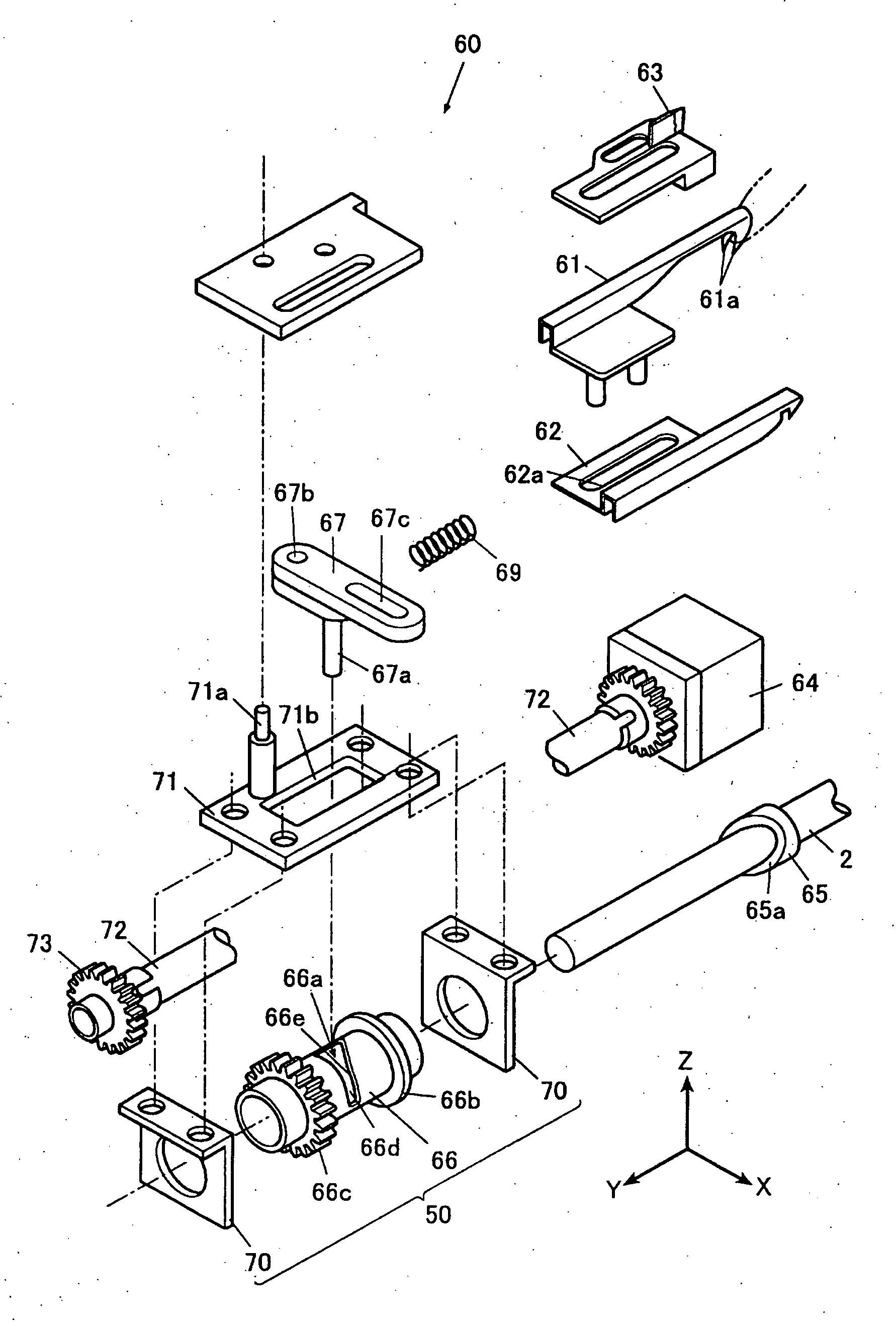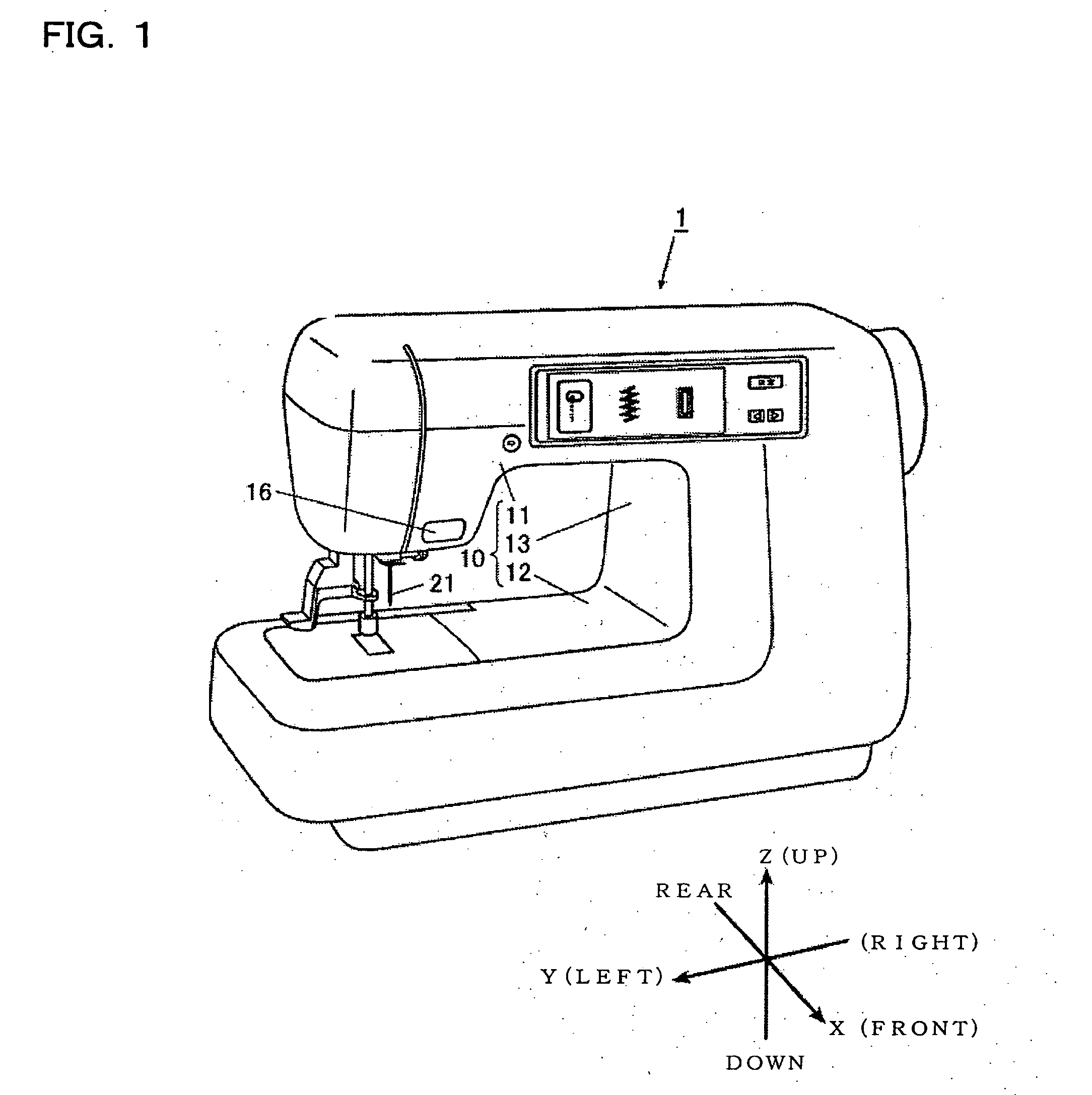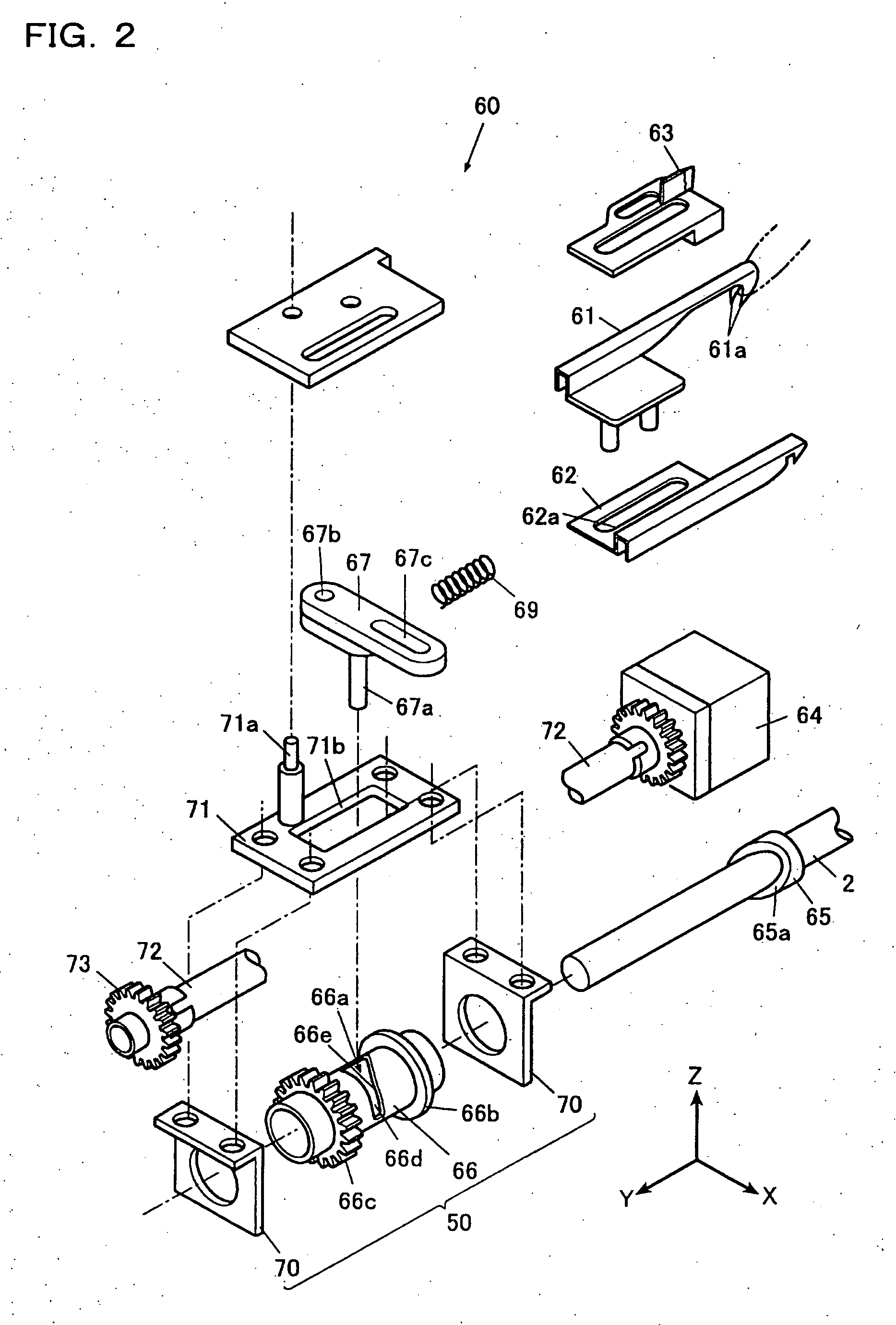Thread cutting device of sewing machine
a cutting device and sewing machine technology, applied in sewing machine control devices, sewing machines, sewing apparatus, etc., can solve the problems of difficult control of the rotation speed of the servo motor in a low speed region, difficult to sufficiently lower the operating speed of the thread catching member, etc., to achieve the effect of smooth catching and cutting of threads
- Summary
- Abstract
- Description
- Claims
- Application Information
AI Technical Summary
Benefits of technology
Problems solved by technology
Method used
Image
Examples
first exemplary embodiment
(Operation )
[0093]Next, an operation of the sewing machine 1 having the above configuration will be described with reference to a flowchart of FIG. 6 and FIGS. 7A to 13.
[0094]As shown in FIG. 7A, the engaging portion 67a of the catching portion operating link 67 is disposed in the standby portion 66d of the catching portion driving cam 66 during a sewing work. Therefore, the engaging portion 67a and the thread cutting cam 65 do not interfere with each other so that the lower shaft 2 and the thread cutting cam 65 can be freely rotated. As shown in FIG. 7B, the thread catching member 61 stands by in a state in which it is positioned at the rearmost position, that is, the standby position P1.
[0095]When the sewing work is ended, the sewing machine motor 5 is stopped so that the upper shaft and the lower shaft 2 are stopped in a state in which the needle 21 is stopped at its lower position. At this time, the thread cutting cam 65 is stopped in a state in which a tip 65b of the end face c...
second exemplary embodiment
(Operation )
[0116]Next, an operation of the sewing machine 1 having the above configuration will be described with reference to a flowchart of FIG. 16 and FIGS. 17 to 21.
[0117]As shone in FIG. 17, during a sewing work, the link 273 is held by the thread catching member driving stepping motor 64 in a direction B, and stands by in a state in which the thread catching member 261 is positioned at the rearmost position P1. At this time, the projection 266a is disposed at a position in which it is not engaged with the end of the thread cutting cam 265. Therefore, the projection 266a and the thread cutting cam 265 do not interfere with each other so that the lower shaft 2 and the thread cutting cam 265 can be freely rotated.
[0118]When the sewing work is ended, the sewing machine motor 5 is stopped so that the upper shaft and the lower shaft 2 are stopped in a state in which a needle 21 is stopped at its lower position. At this time, the thread cutting cam 265 is stopped with the straight g...
PUM
 Login to View More
Login to View More Abstract
Description
Claims
Application Information
 Login to View More
Login to View More - R&D
- Intellectual Property
- Life Sciences
- Materials
- Tech Scout
- Unparalleled Data Quality
- Higher Quality Content
- 60% Fewer Hallucinations
Browse by: Latest US Patents, China's latest patents, Technical Efficacy Thesaurus, Application Domain, Technology Topic, Popular Technical Reports.
© 2025 PatSnap. All rights reserved.Legal|Privacy policy|Modern Slavery Act Transparency Statement|Sitemap|About US| Contact US: help@patsnap.com



